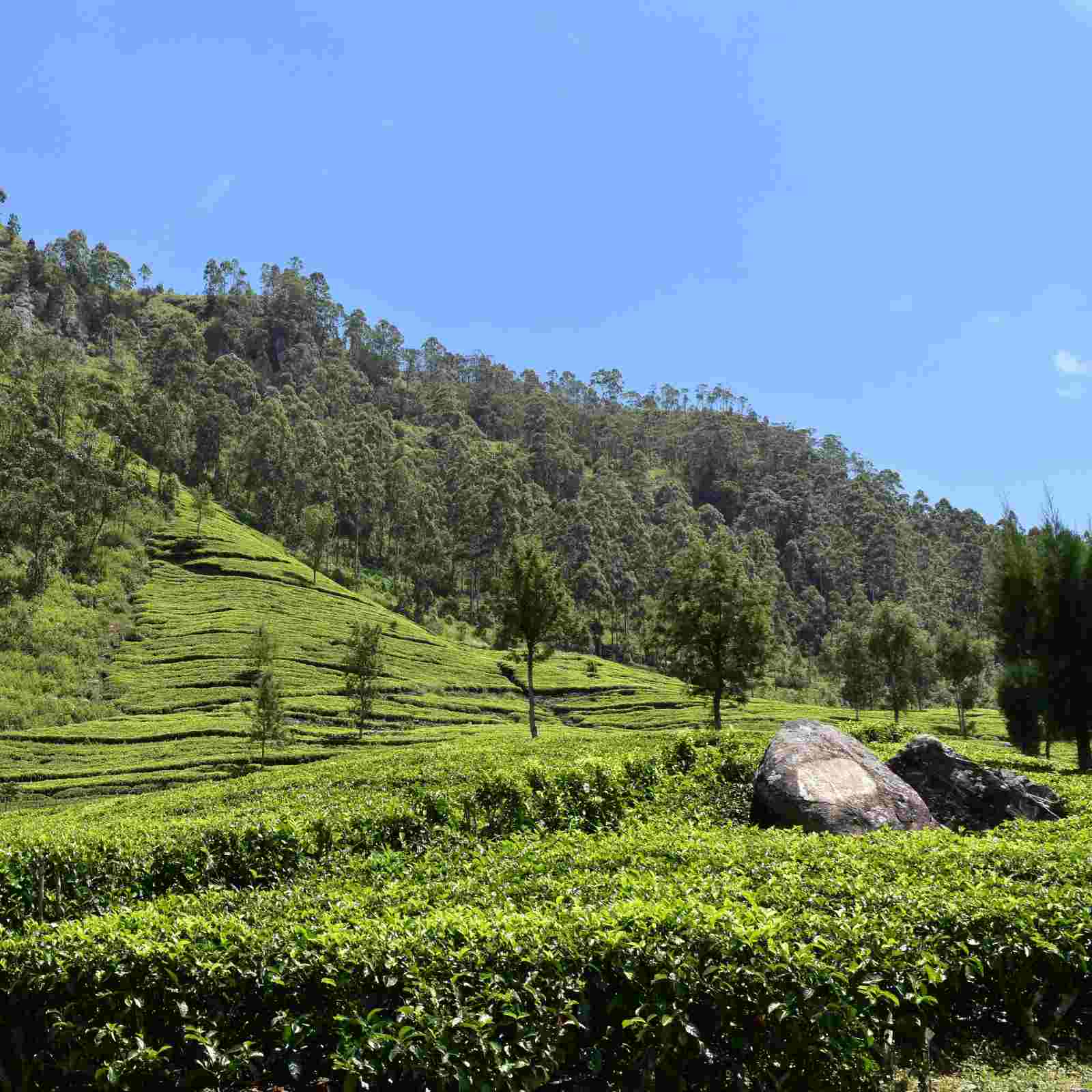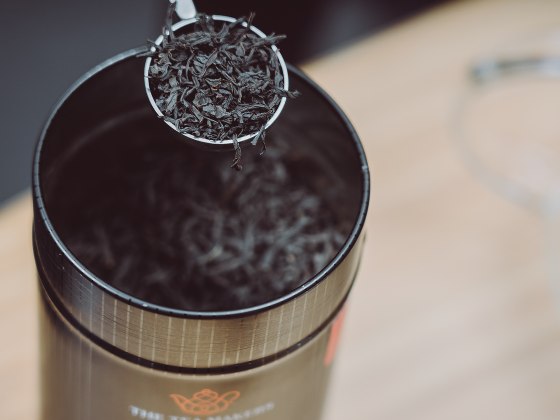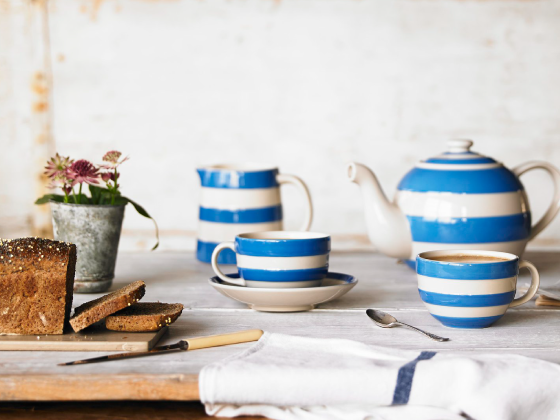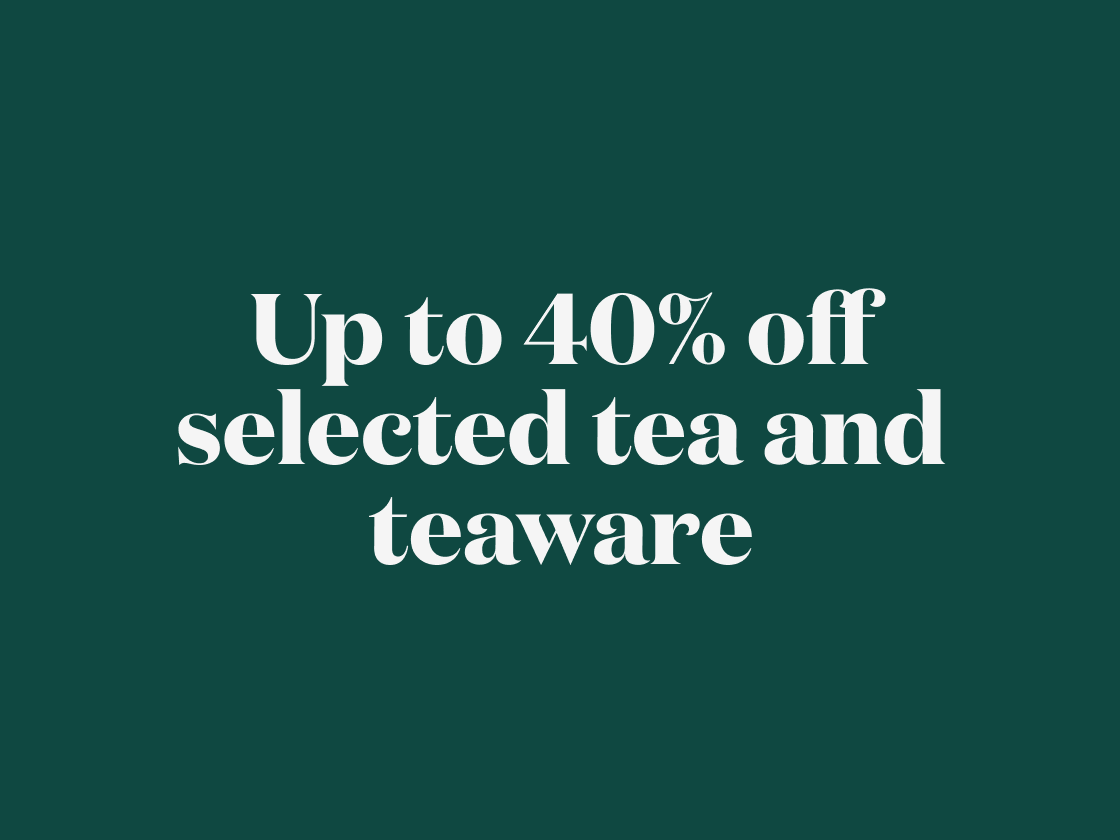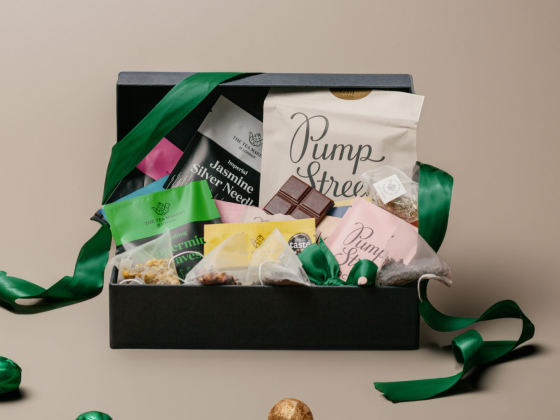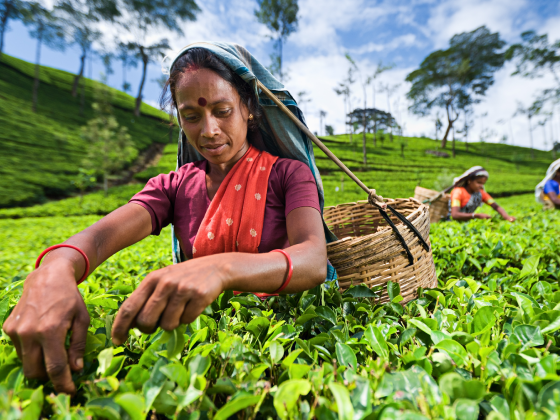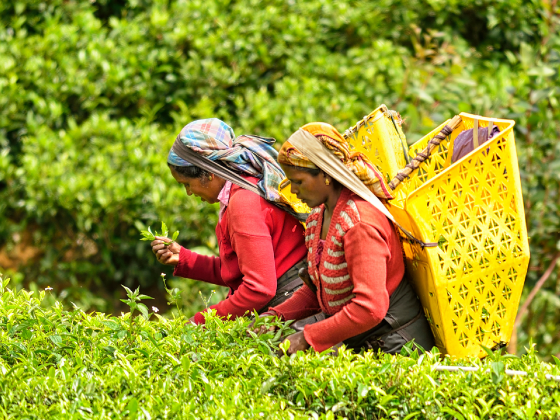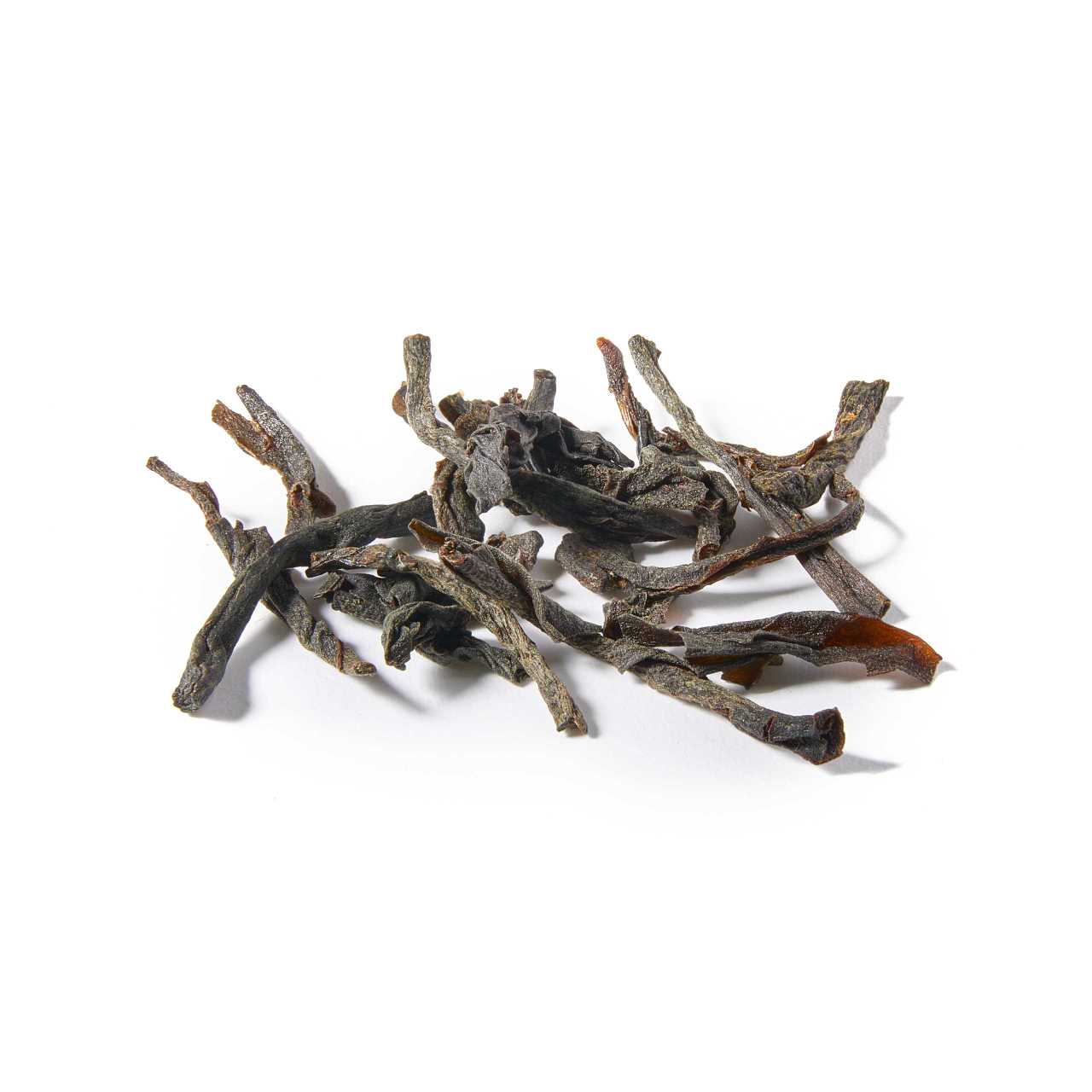

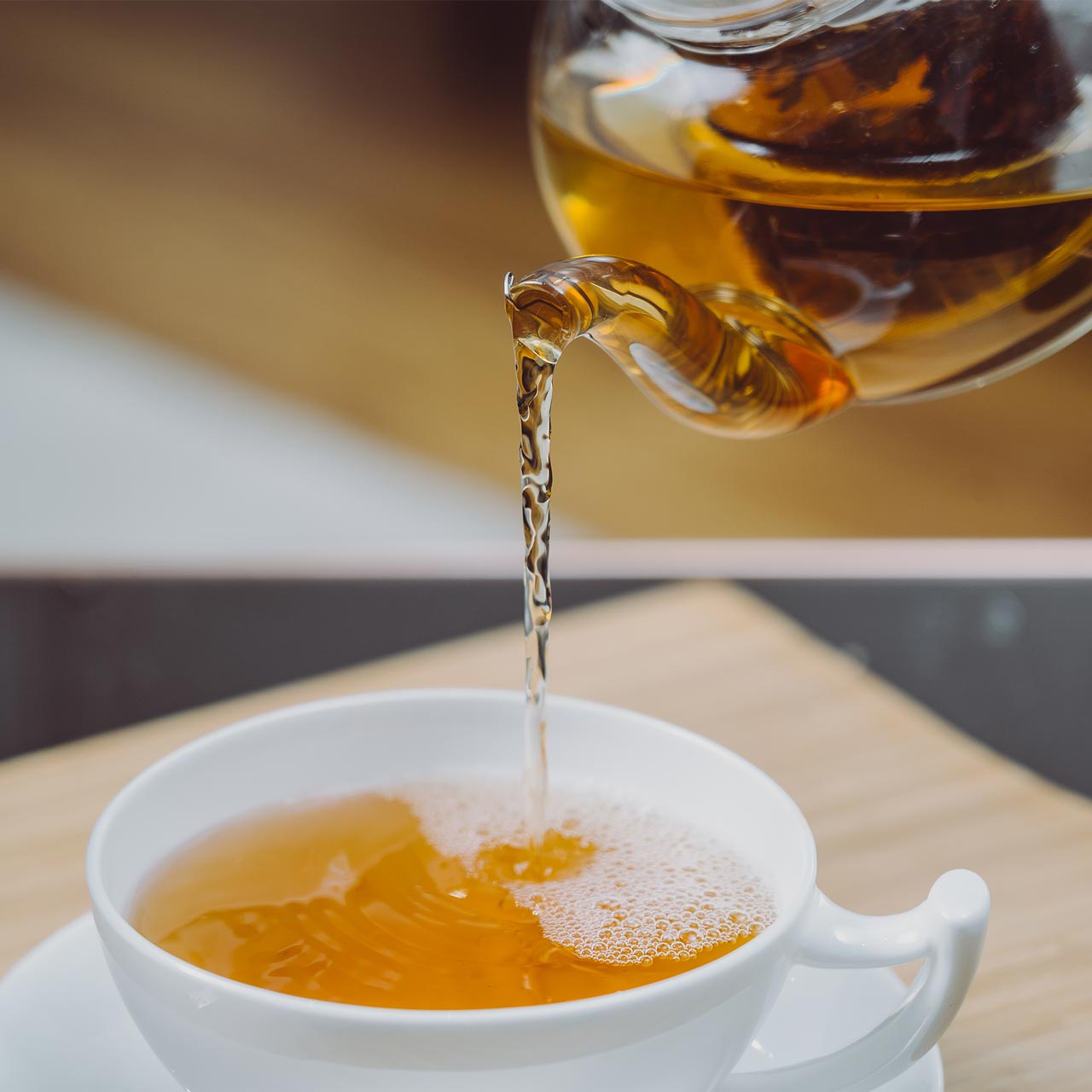

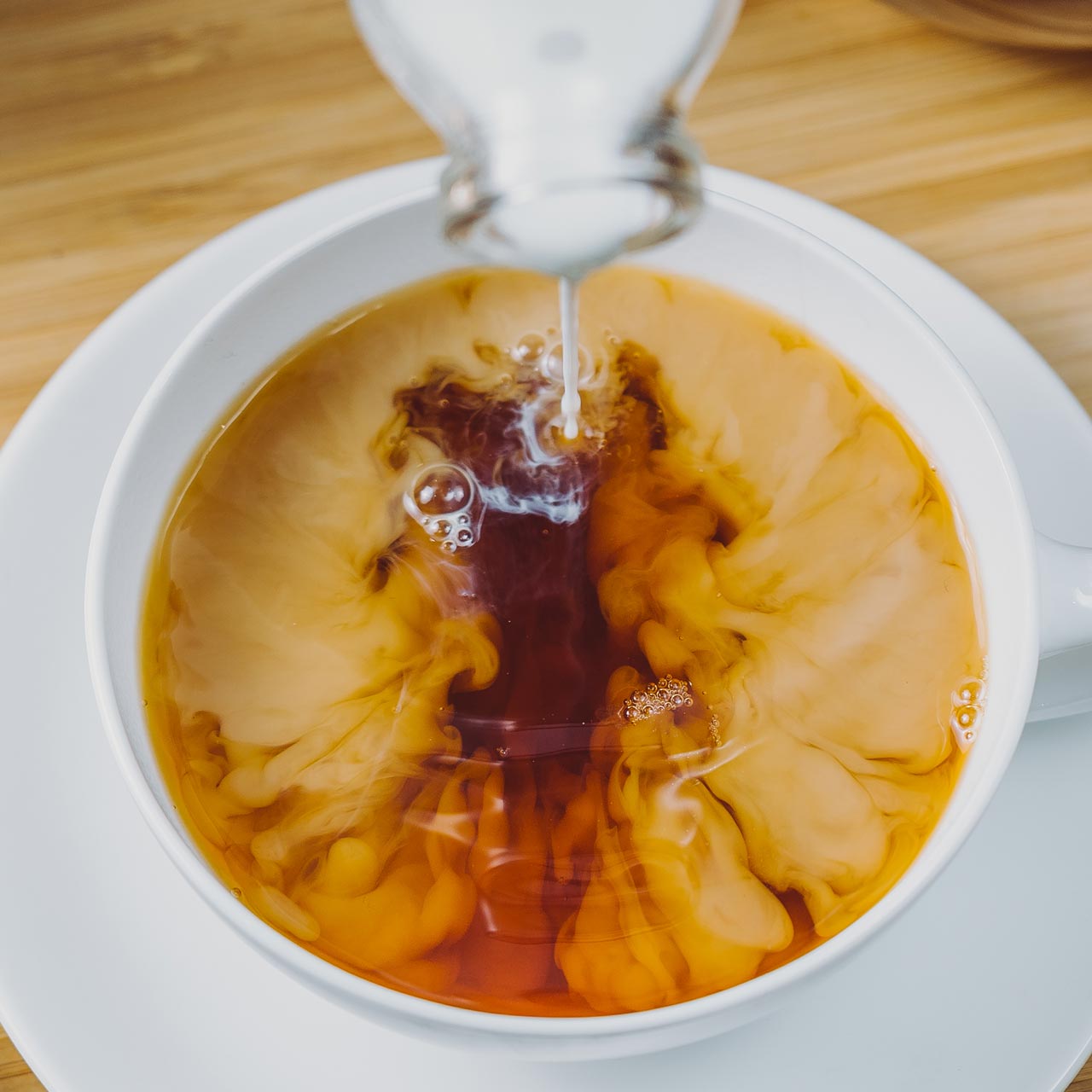

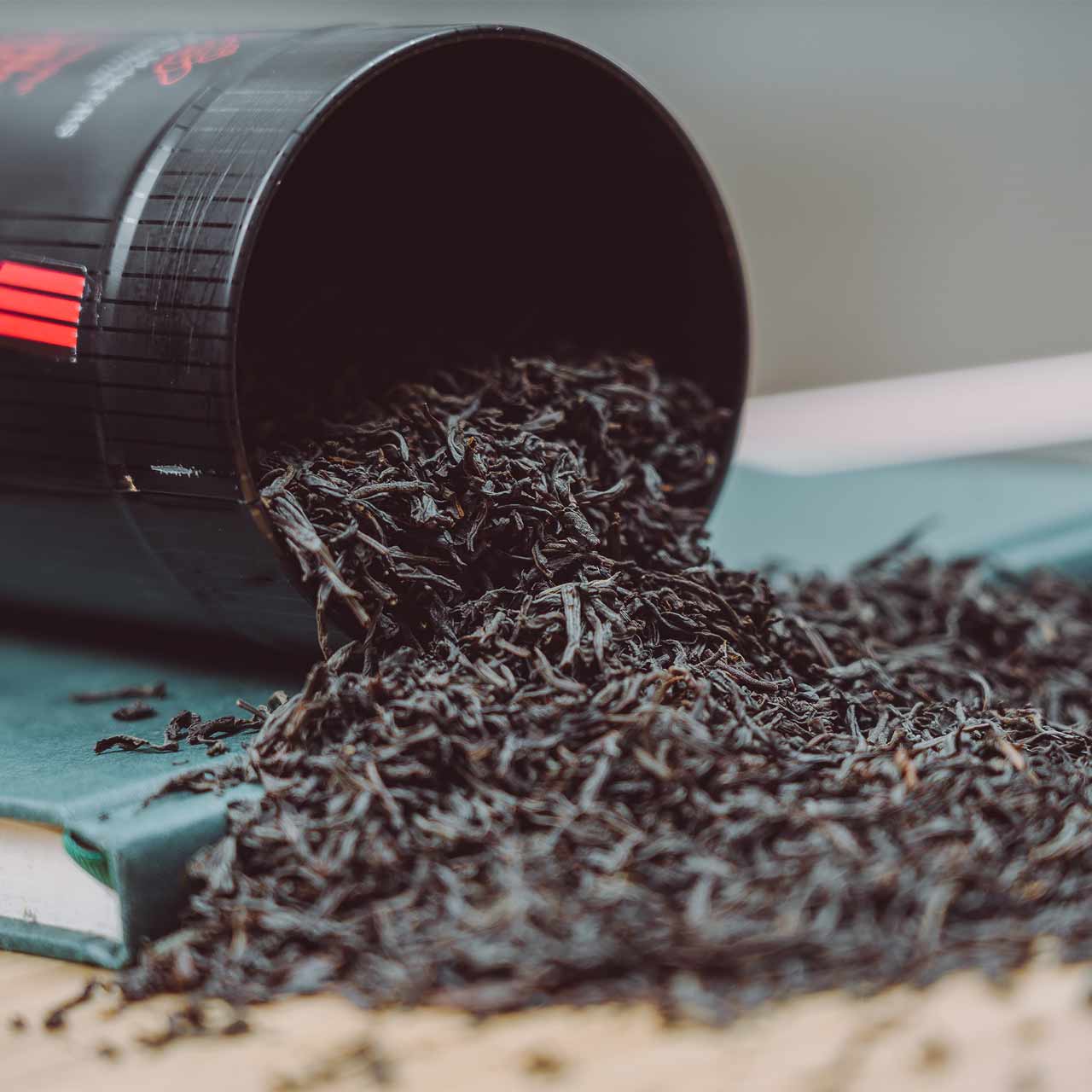

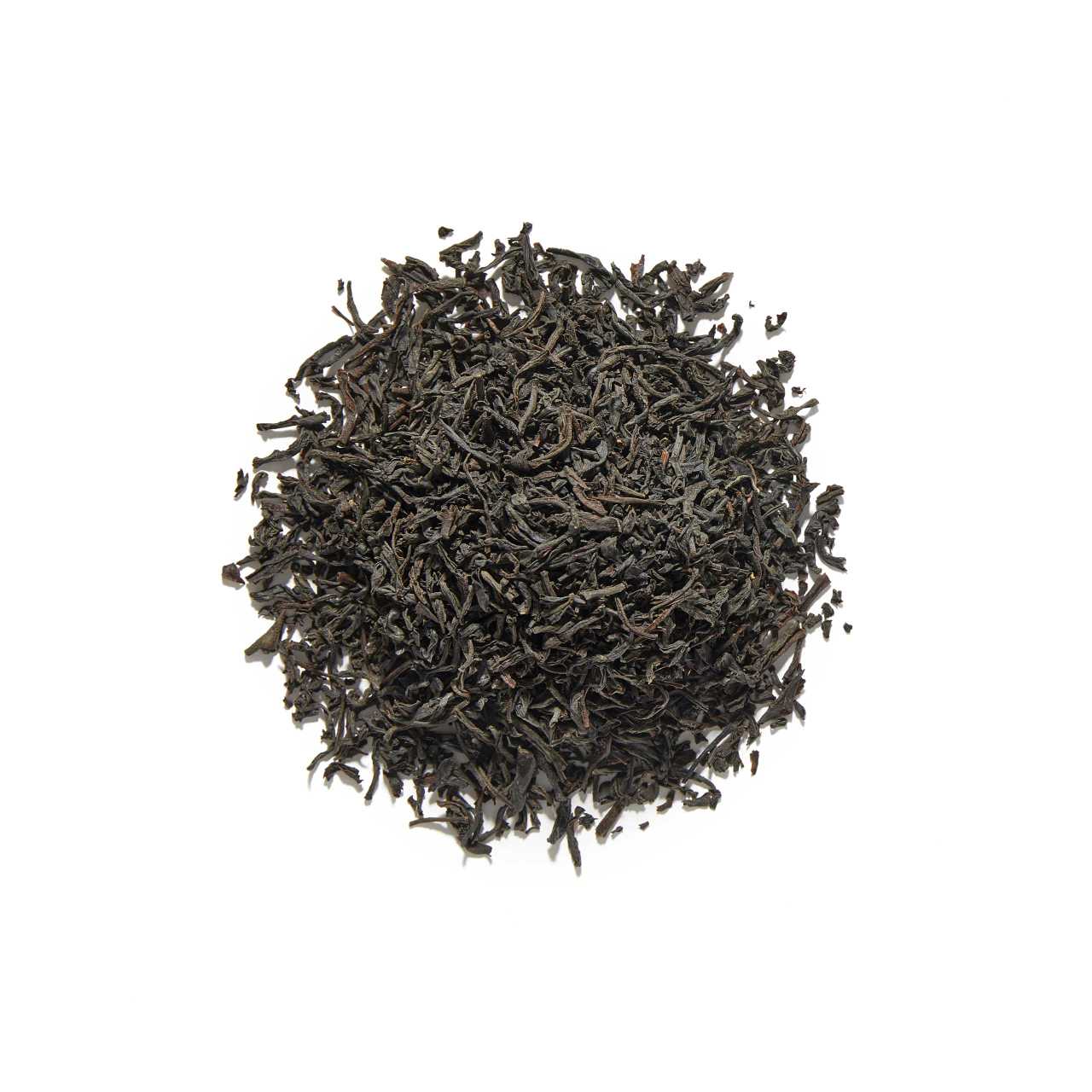



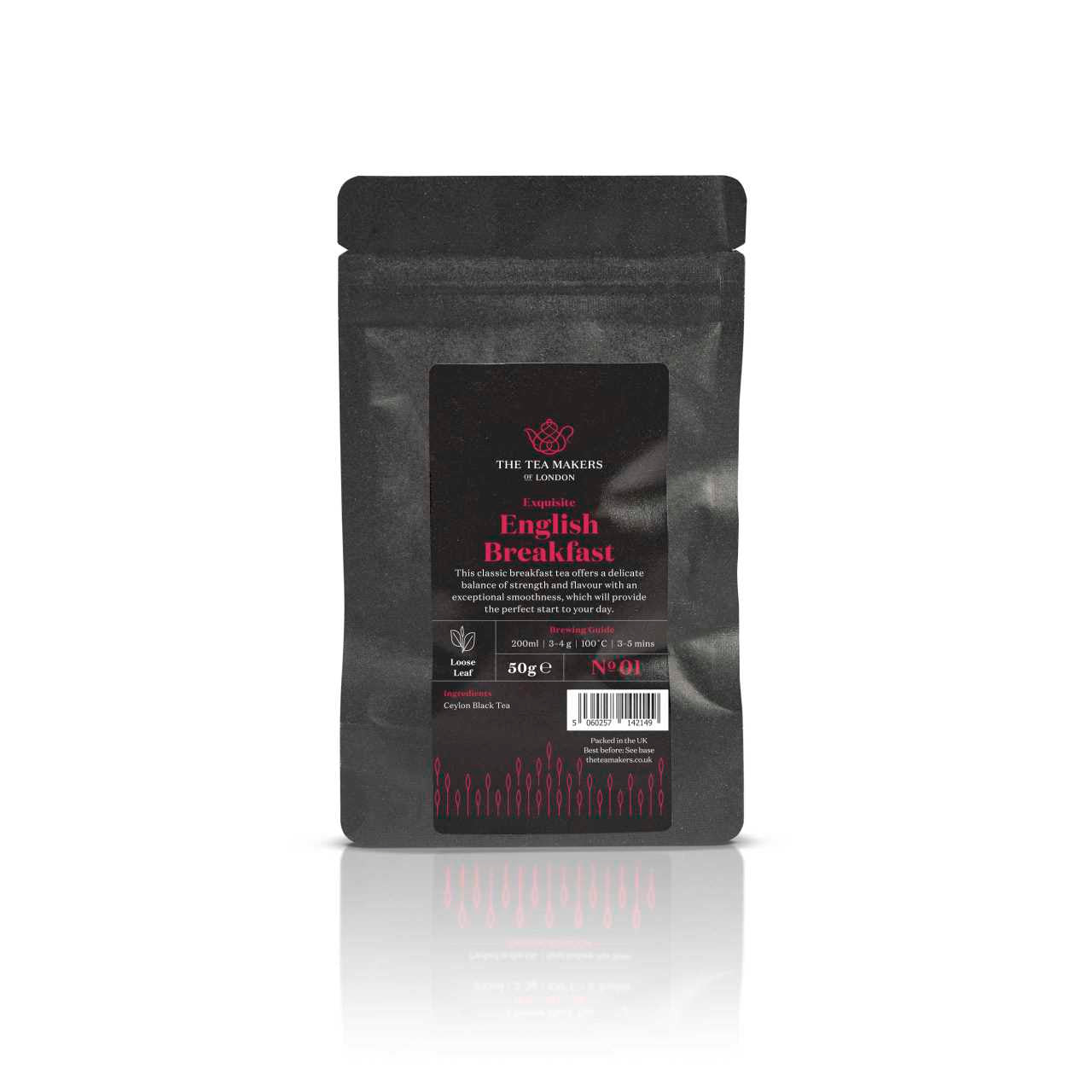

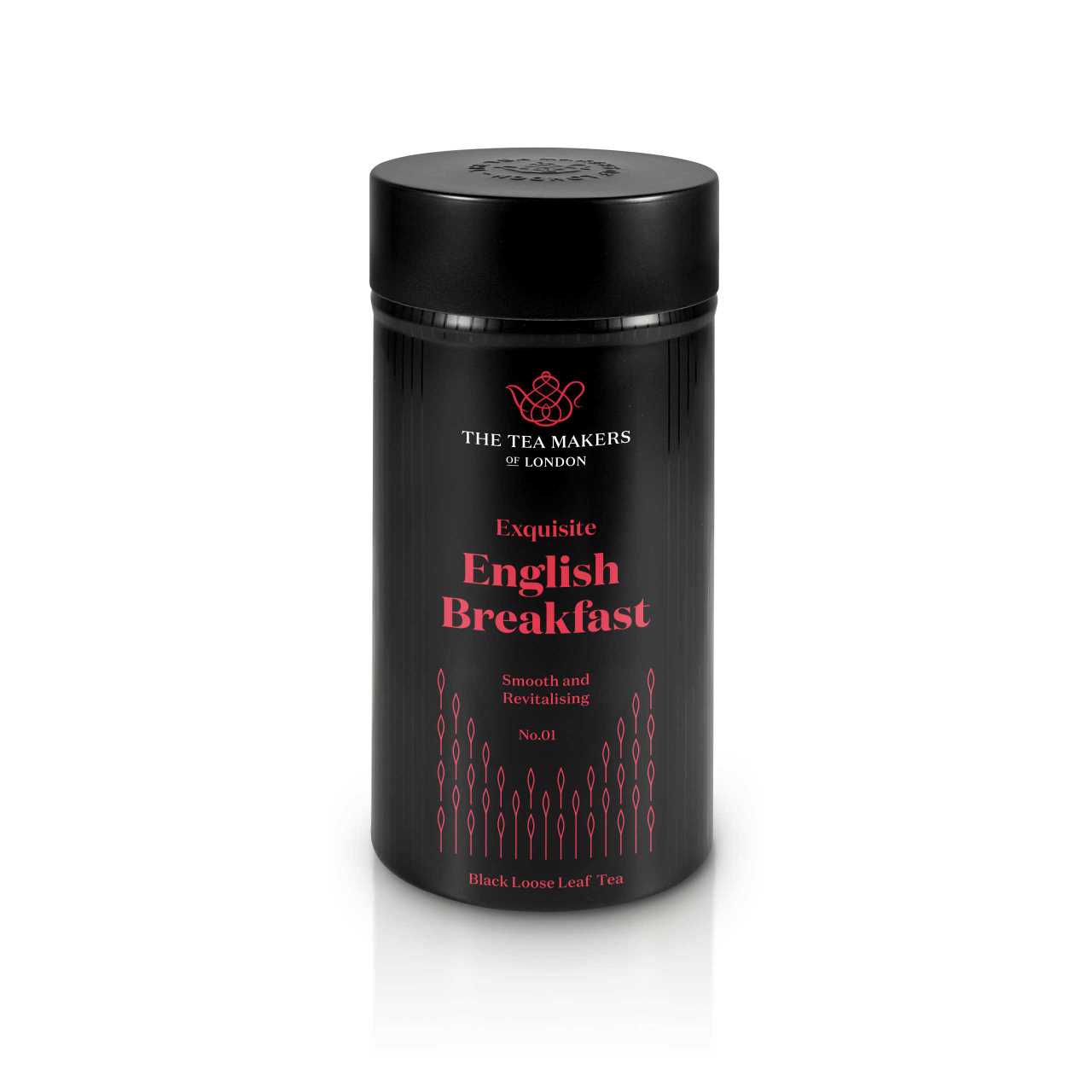

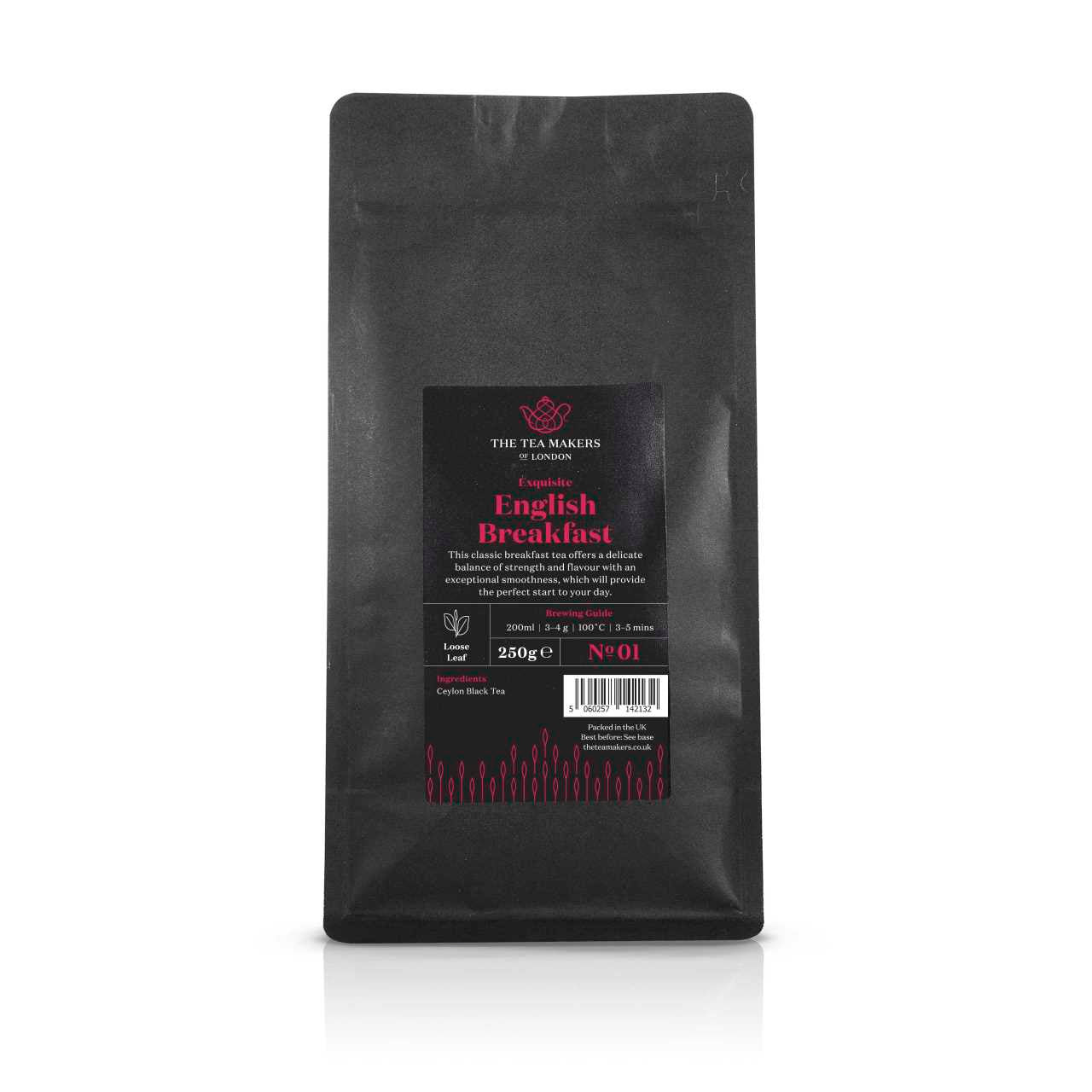

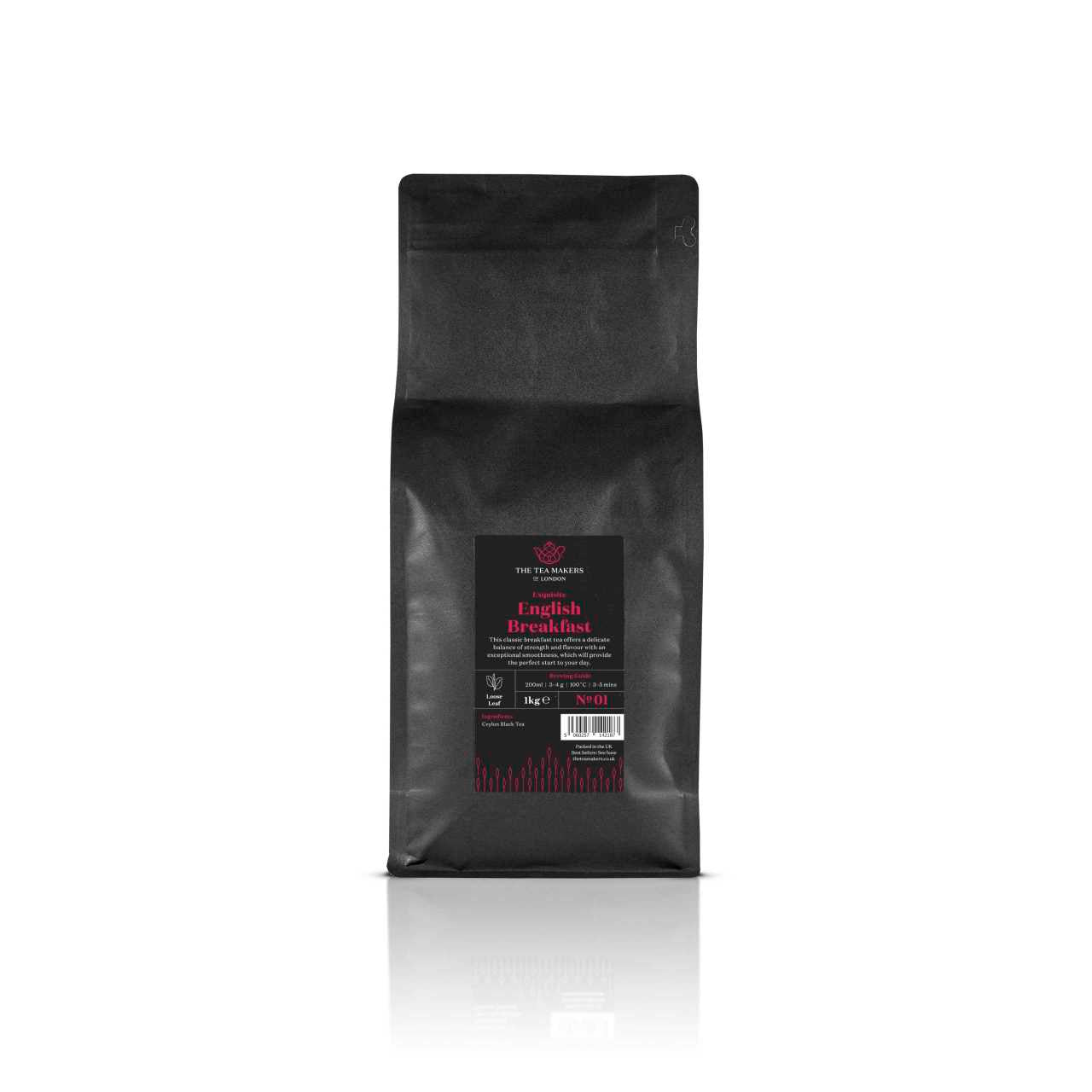

No. 1
English Breakfast - Loose Leaf Tea
A premium blend of black teas, our award-winning English Breakfast tea balances strength with caramel smoothness in a classic brew that can be enjoyed all day.
Choose options
A premium blend of black teas, our award-winning English Breakfast tea balances strength with caramel smoothness in a classic brew that can be enjoyed all day.
A premium blend of black teas, our award-winning English Breakfast tea balances strength with caramel smoothness in a classic brew that can be enjoyed all day.
Sourced from the high-altitude tea gardens of Sri Lanka, our premium English Breakfast Ceylon Black Tea is a classic loose-leaf blend boasting a smooth flavour, tantalising amber colour and rich, astringent mouthfeel. With dark, wiry leaves and toasted caramel notes, it has all the brisk, full-bodied characters that have made English breakfast tea a classic breakfast brew.
The leaves for our Great Taste award-winning Ceylon breakfast tea are harvested all year round in Sri Lanka's celebrated Dimbula and Nuwara Eliya tea regions, located at 1,448m and 1,868m above sea level, respectively. This is where artisan producers have farmed the plantations for more than 150 years, taking advantage of the mountainous terrain and monsoon-affected climate. Here, cool blustery blasts blow through the valleys, rainfall is high and frosts can be seen in winter, which places a measure of stress on the tea plants.
English breakfast tea is typically made from a blend of robust black teas that hail from either Sri Lanka or Assam, in India's north-east. To create an unrivalled taste experience for ours, we carefully select the finest Ceylon BOP (Broken Orange Pekoe) and larger FBOP (Flowery Broken Orange Pekoe) grades of loose-leaf teas. We choose 100% pure orthodox Ceylon teas for their strength and well-rounded character, which makes them the perfect ingredients for this blend.
How Orthodox English Breakfast tea is made
Tea making begins with picking carefully selected succulent leaves and buds from the Camellia Sinensis plant. Once plucked, the leaves go through the time-honoured orthodox production process: withering, to dry them out, then rolling, which transforms them into the familiar thin, wiry shape. This is followed by oxidation, sometimes referred to in the tea industry as 'fermentation', when the broken, rolled leaves are laid out and exposed to the air for a set period of time, usually several hours. Here's where the magic happens, as the leaves darken and the chemical processes kick in, contributing to the tea's distinctive aroma, colour, strength and briskness – in essence, its character. Next, the tea is dried again, this time in a chamber with hot, conditioned air – a process that further desiccates the leaves, intensifies their colour and helps maintain quality for storage. Finally, they are sorted by hand, ready for shipment and delivery.
In the humid Sri Lankan hills, the process of oxidation takes up to four hours, during which the leaves turn copper brown and the tea's unique fragrance starts to unfurl. This process also ensures that the steeping liquid is strong and flavourful. Our English Breakfast tea has a grade of BOP/FBOP.
Facts about this iconic tea
English breakfast tea's rich characters, invigorating flavour and high caffeine content are what have made it so historically popular. It was the first blend to become a commercial success, most notably in its namesake UK, where it has long been famous as the nation's favourite 'eye-opener'. It is often enjoyed hot or as an iced tea, or as the perfect companion to a Full English Breakfast.
In recent years, studies have also pointed to English breakfast tea's health benefits. Whether taken strong and black in the morning or with milk and sugar throughout the day, a cup of black tea is now known to pack in minerals such as magnesium and potassium while also being rich in antioxidants and vitamin B. It also may have an impact on blood pressure.
As for its popularity in times past, it was Catherine of Braganza, Portuguese wife of the English King Charles II, who started the habit of drinking tea in the morning. As a new arrival at the English royal court, Catherine was known to prefer tea to ale – at the time the customary breakfast drink of choice – and a new upper-class trend was set. But as the 17th century rolled into the 18th and 19th, tea transitioned from an upper-class luxury to a beverage enjoyed by British citizens of all stripes. By the time Scottish tea master Robert Drysdale introduced what would eventually become known as the English breakfast blend to Queen Victoria in the 1890s, almost everyone had a caddy in their kitchen.
Alternatives
For those who love the bold flavour of an English breakfast blend, our Assam Breakfast Tea packs a similar flavour punch, with a rich infusion and a lift from fruity notes. Other alternatives for a strong cup of tea include Irish Breakfast and Ceylon Breakfast. If you're after something brighter, with citrusy notes and floral undertones, try our best-selling Supreme Earl Grey.
Looking for more black teas? Why not sample a wider taste with our Classic Black Tea Discovery Collection.
This tea offers a warm toasted caramel aroma and dark amber infusion. A full bodied, brisk cup with smooth caramel notes and richly astringent mouthfeel.
Pure Sri Lankan black tea
